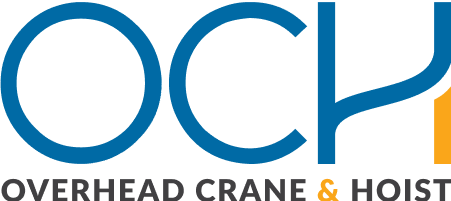Delta TechOps, the maintenance and repair arm of Delta Air Lines, is the largest airline maintenance, repair and overhaul (MRO) provider in North America.
In addition to supplying maintenance and engineering support for Delta’s fleet of aircraft, it provides high-quality service to more than 150 other aviation and airline customers around the world and has developed strategic partnerships for next-generation engines with Pratt & Whitney and Rolls-Royce. The organisation specialises in high-skill work such as engines, components and line maintenance.
Delta TechOps has more than 90 years of experience in aviation and also employs thousands of aviation maintenance professionals.
In February, it expanded its capabilities by opening a new engine repair shop in Atlanta, Georgia, in the US, to support Pratt & Whitney GTF (geared turbofan) engines, the PW1100G and PW1500G, that respectively power Delta’s fleet of Airbus A321neo and A220 airliners.
The new facility covers 155,000ft2 and includes 60 engine bays plus room for expansion. The shop will service GTF engines alongside customer engines maintained through Delta TechOps MRO business. It’s estimated the facility will service approximately 300 jet engines per year.
Key areas of the shop include engine disassembly and assembly, module disassembly and assembly, work in progress (WIP), cleaning, shipping and receiving, and an administrative area.
The new facility will be home to several hundred staff members including more than 100 mechanics along with others working in engineering and supply chain.
Crane and hoist specialists Engineered Systems Inc. (ESI) provided the repair shop’s overhead cranes.
The company had a prior working relationship with Delta TechOps, which helped secure the contract for the engine repair shop, with ESI having supplied cranes at an existing building.
“My relationship goes back about 12 or 13 years with them,” says Keith Lewis, West Georgia territory manager at ESI.
He says ESI got involved with the project in the design phase around three years ago, and was awarded the project in late 2021. The construction phase leading up to the building’s ribbon-cutting ceremony on 7 February lasted “a little bit over a year”.
What is now a repair shop had previously been a cargo building, which, says Lewis, meant there was no structures to support the cranes.
After holes were cut in the floor for all the footings, ESI’s scope started with the support steel.
“I have 340 tons of just support steel – columns and header beams. My runways: I have about 3,900 linear feet of crane runway rails,” explains Lewis.
Thirty-three cranes have been installed, each with two hoist and trolley units, for a total of 66 hoist and trolley units. The cranes come in various capacities – the lighter cranes, 15 of them, have a 2.0- ton capacity, and there are 16 6.0-ton cranes as well as two 8.0-ton cranes. ESI purchased the components from its vendor, in this case Acco, and then built the cranes.
“They’re cross-mounted on the girders, which allows them to lift the engines and to stand them on end and rotate them, and then pick them back up again. It’s a special configuration of the hoist. We have custom controls that makes the job easier and safer… when handling the engines within the work bays,” says Lewis.
The work of installing the cranes, he says, didn’t experience any challenges that ESI hadn’t already anticipated.
“There was just a great team of folks – from the general contractor that we worked with through to our partners on site,” he says.
“I was very fortunate with supply chain issues,” Lewis continues. “I feel that our order was entered just in time to get our equipment before we really would have hit some supply chain issues. I was very concerned, so we stayed on top of things from the beginning. I worked with Acco – we actually made a trip to their facility as soon as the order was placed to try to make sure that all the long-lead items were entered quickly because there were so many. Everything flowed very well. I was very pleased with the success of this job.”
The new GTF engine shop is the latest in a series of investments by Delta to bolster the infrastructure and resources available to the TechOps team. Delta says these investments not only support its commitment to safety and service reliability but also its goal of expanding the revenue stream generated by the MRO business.
“We are incredibly proud of our new engine shop and what it means for the future of Delta, our partnership with Pratt & Whitney, and our relationships with our other MRO customers,” says Don Mitacek, senior vice president of Delta TechOps and president of Delta TechOps Services Group.
“The investments we’ve made in new capabilities and facilities over the past five years solidify our position as a strong global MRO provider and will enable Delta people to continue to provide exceptional service and reliability to our customers.”
Pratt & Whitney, meanwhile, has been a long-standing partner of Delta Air Lines and the TechOps division. The company currently powers more than 260 aircraft in Delta’s fleet. At February’s ribbon-cutting ceremony, Pratt & Whitney leaders were in attendance alongside state government officials, with Shane Eddy, the company’s president, among them.
“Our relationship with Delta is one underpinned by transparency, teamwork and commitment,” he said. “For more than 90 years, we have worked together to overcome challenges and find creative, mutually beneficial solutions.
“This beautiful… facility marks the latest chapter in our shared commitment to providing customers with world-class MRO service and exemplifies the growing demand for GTF engines.”
Also at the event was Delta Air Lines chief executive Ed Bastian. He said: “Pratt & Whitney GTF engines will not only power Delta’s fleet of the future but will also support many other commercial airline operators in the Americas and beyond.
“The opening of this new facility will help us continue to provide dependable jobs and dependable engines for years to come.”






